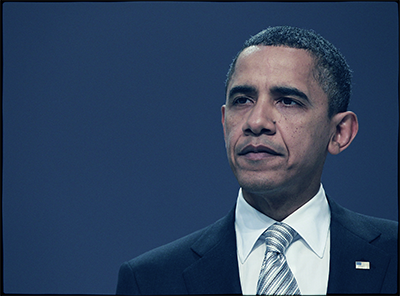President Obama recently recognized the so-called "Immigrant Heritage Month" — a phony creation of cheap labor lobbyists at Facebook's FWD.us. The unofficial designation is simply a facade designed to advance Obama's amnesty agenda and help companies obtain cheap tech workers from abroad.
During his weekly address on the subject, Obama promised to push for more immigration despite high unemployment, but also made an admission that highlights the inaccurate language used all too often in the immigration debate. Without realizing it, Obama supported those of us who prefer use of accurate terminology when discussing immigration.
Obama noted that his "father was not an immigrant". This is true. An "immigrant" as defined by Merriam-Webster, is a person who moves to a country to take up "permanent residence".

As a foreigner in the United States on a temporary basis with a student visa, Barack Obama, Sr., was an alien. As explained in federal law, an alien is "any person not a citizen or national of the United States." This is not a pejorative — the term allows for clear and precise communication about an often convoluted and confusing topic. Similarly, a foreigner visiting the United States as a tourist is an alien, as are temporary workers. Foreigners in the country illegally are appropriately referred to as illegal aliens.
Only those seeking to muddle the debate describe all foreigners as "immigrants" or use inaccurate, activist-created terms like "undocumented".
The term "immigrant" should really only be used to describe individuals entering the United States on a permanent basis who have received a green card. If the individuals later acquire U.S. citizenship they become citizens and are no longer immigrants.
Confusingly, though Obama recognizes his father was not an immigrant, he apparently believes that when a non-immigrant on a temporary visa overstays, that person becomes an immigrant, albeit an "undocumented" one. This illustrates how open-border activism clouds logical reasoning.
Those looking up "immigrant" in the official USCIS glossary will discover that it directs one to "Permanent Resident Alien" instead. The definition there explains that such individuals are "commonly referred to as immigrants". This is consistent with the definition found in the dictionary.
However the glossary also notes that there is some confusion in statutory law about the definition of "immigrant" and that the INA "broadly defines an immigrant as any alien in the United States, except one legally admitted under specific nonimmigrant categories". The INA does have a section titled "Definitions" and it carves out exceptions of foreigners who would not be considered immigrants, ranging from foreign diplomats to foreign fashion models (the list of exceptions is pages long, with 22 different subsections and many sub-subsections that have been expanded over the years). In order to eliminate some of the confusion and make the INA's definitions more consistent with the dictionary's definition of "immigrant", it would be wise for Congress to add a subsection exempting illegal aliens from the definition of "immigrant" as well.
How language is used in the immigration debate is an important subject if we are ever to move toward a better immigration policy; it's one thing to disagree with someone, but if accurate communication isn't even possible then we'll get nowhere. I explored the issue of language in journalism in this report: "Language in the Immigration Debate: Associated Press Pushes Back Against Illegal Alien Activists". I also detailed my attempts to get the media to correct inaccurate reporting in these blog posts: "Media Describes Illegal Aliens As "Undocumented Californians" and "Media Still Claiming DACA's Just for People 'Brought' Here".
